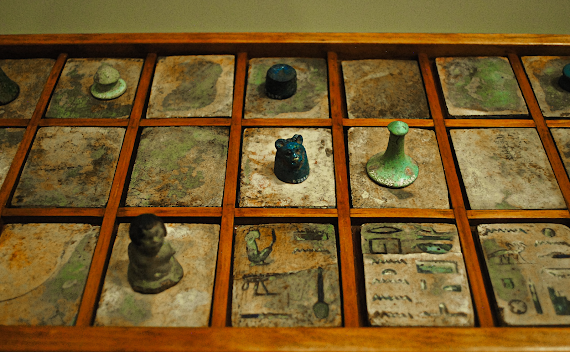Baghchal, also known as Bagha Chal, is a traditional board game that has been played in Nepal for centuries. The game is popular among both adults and children, and is enjoyed throughout the country. Mobile version of Baghchal is also available on Android and iOS.
Baghchal is a two-player game that is played on a 5×5 board. One player takes on the role of the tiger, while the other player takes on the role of the goats. The objective of the game is for the tiger to capture all of the goats, while the goats must try to surround the tiger so that it cannot move. The game is divided into two phases. In the first phase, the goats are placed on the board, while the tiger waits to make its move. The goats are placed on the board in turns, with the goat player placing one goat at a time. The tiger player must wait until all of the goats are placed before making its first move.
In the second phase of the game, the tiger takes its turn to move. The tiger can move one space at a time, either horizontally or vertically, and can capture a goat by jumping over it. The goats, on the other hand, can only move one space at a time, and cannot capture the tiger.
The game ends when either the tiger captures all of the goats, or the goats surround the tiger so that it cannot move. If the goats manage to surround the tiger, they win the game. If the tiger captures all of the goats, the tiger wins.
Baghchal is a game that requires strategic thinking and planning. The goat player must try to position their goats in a way that will make it difficult for the tiger to capture them, while the tiger player must try to outmaneuver the goats and capture as many as possible.
The game is not only a fun pastime, but also has cultural significance in Nepal. Baghchal is believed to have originated in ancient India, and was brought to Nepal by the Malla dynasty in the 14th century. It is often played during festivals and other cultural events in Nepal, and is a source of national pride.
In conclusion, Baghchal is a simple but challenging board game that is enjoyed by people of all ages in Nepal. Its cultural significance and strategic gameplay have made it a beloved pastime for generations. If you’re looking for a new and exciting board game to try, give Baghchal a chance and see if you can outsmart your opponent and emerge victorious!










.jpeg)








